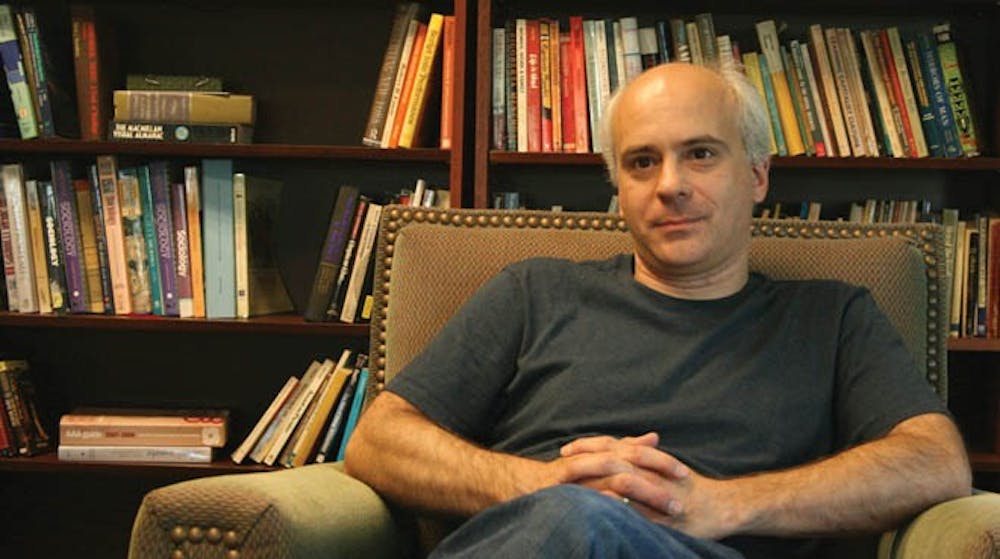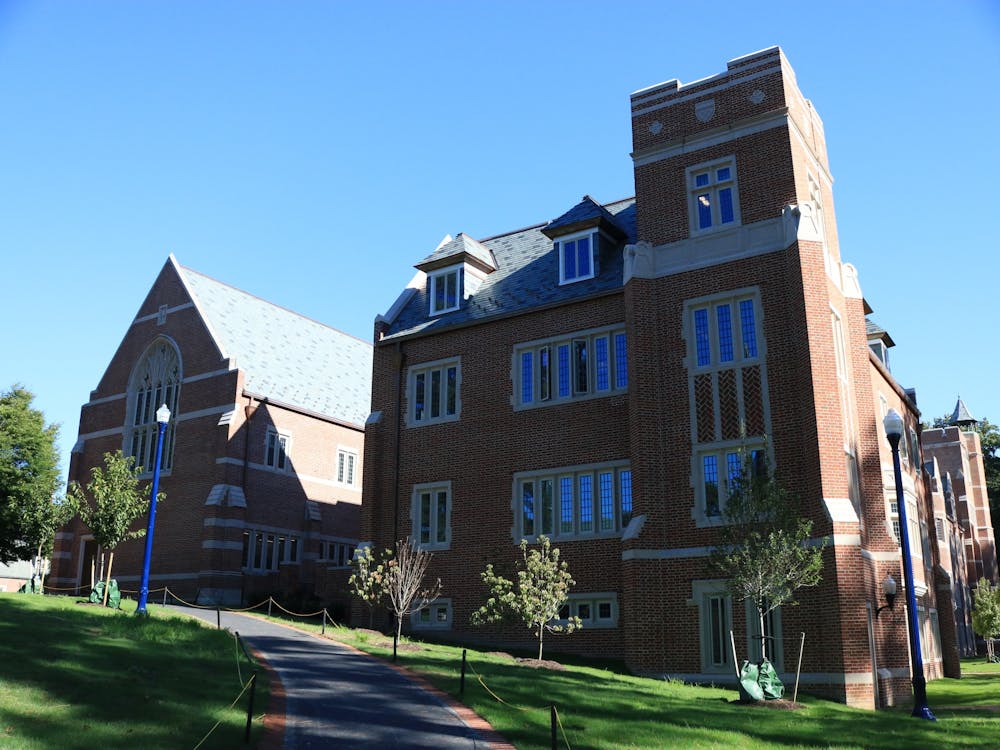After filling out applications, creating book proposals and writing a three-page essay in Russian, two University of Richmond professors received grants this year that will allow them to take their academic interests outside of Virginia.
After three years of teaching at Richmond, professors can take a semester paid leave in order to pursue their own research. Peter Lurie and Jeffrey Hass, both university professors, have received fellowships for completely different areas of study, but they are equally enthusiastic about the topics they are researching.
Lurie, an assistant professor of English, received the $60,000 Jessie Ball DuPont Fellowship to support work on his book, "American Obscurantism."
The book will explore how history is suggested in subtle ways through specific works of literature and film. Lurie will examine the written works of William Faulkner, Hart Crane and Dashiell Hammett, as well as films such as "The Shining" and "Fargo."
For example, in Stanley Kubrick's "The Shining," the Overlook Hotel is built on a Native American battleground, Lurie said.
"It is haunted by history," he said.
Navajo rugs hang in the hotel as trophies, he said. "The Shining" can stand as a metaphor for the United States' violent presence in the West, Lurie said.
"History is subtle and suggested," he said. "The film comes at history in a suggestive manner and doesn't try to see more than it can."
Lurie also examined D.W. Griffith's 1915 silent film, "Birth of a Nation," as a contrast to the films and books that depict history in an indirect way.
"Birth of a Nation" depicts history clearly, giving a racist depiction of the Reconstruction and making the Ku Klux Klan the hero, Lurie said.
But Griffith's questionable storyline was overlooked because of his innovations in film, Lurie said. "Birth of a Nation" was the first blockbuster film and the first film to experiment with editing.
Despite his success, Griffith was naive, Lurie said, because he thought he could change history with his film.
Enjoy what you're reading?
Signup for our newsletter
Griffith's attempt at changing history through his film still doesn't change what actually happened. Writers and directors who portray history in a more oblique way allow the history to be more truthful, Lurie said.
Lurie's Jessie Ball DuPont Fellowship is a residential fellowship offered through the National Humanities Center in Research Triangle Park, N.C. Lurie will commute to North Carolina during the week to be at the NHC, which has offices and library offices to conduct research.
The fellowship runs from September to May and began on Labor Day, he said. Jeffrey Menne of Vanderbilt University has taken over Lurie's classes this semester while he is on leave.
Hass, an associate professor of sociology, will have to travel farther for his fellowship. Hass will conduct collaborative research in Russia with Professor Nikita Lomagin of St. Petersburg University, under a $30,000 fellowship from the National Endowment for the Humanities, the American Councils for International Education.
Because of Russian visa restrictions, Hass can only spend 90 days at a time in Russia and must spend 90 days in the United States between trips, he said.
Hass' research focuses on the World War II blockade in Leningrad — known today as St. Petersburg — as an example of how war shapes conceptions and practices of social normality and power relations in a state and society.
"Sociology does a horrible job of bringing Russia into its analysis," Hass said. "There is very little about it."
Hass chose to focus on the blockade because he views it as one of the world's worst urban famines. On Sept. 9, 1941, Leningrad was placed under siege by the Axis powers that lasted for 900 days.
"Nazis practically surrounded the city," Hass said. Hitler couldn't be present in Leningrad, so he decided to starve it, he said.
The occupation of France and The Blitz in Britain don't even compare to the horror of the blockade, Hass said. People were so hungry, they resorted to cannibalism, he said.
"I want to look at the social practices [in Russia that changed because of the war]," Hass said. Some of his research will focus on needs of the collective versus the individual, he said.
"As the horror of war and starvation sets in, people's rationality changes," Hass said. "At what point do you share? At what point do you think only of yourself?"
Hass, who is fluent in Russian, will spend much of the fall looking at Russian diaries from the time of the blockade, he said.
"One archive in St. Petersburg has 100 diaries," he said.
Hass became interested in Russia because of his Slavic roots, he said. Hass said he had been more interested in Russia and Stalin than he was in Chemistry, which had been his college major.
Hass and Lomagin plan to write articles and a book based on their research, Hass said. Hass' fellowship lasts until August 2010.
Both Lurie and Hass are thankful for the university's support of their research.
"It's so great to have the National Humanities Center's support, but it's so great when the school also supports your research," Lurie said. "I'm very grateful to them."
Contact reporter Ryan Clark at ryan.clark@richmond.edu
Support independent student media
You can make a tax-deductible donation by clicking the button below, which takes you to our secure PayPal account. The page is set up to receive contributions in whatever amount you designate. We look forward to using the money we raise to further our mission of providing honest and accurate information to students, faculty, staff, alumni and others in the general public.
Donate Now



